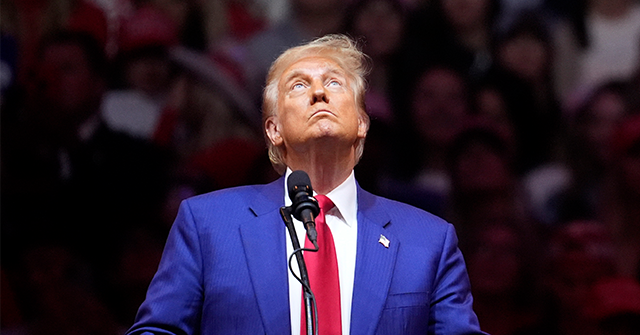Donald Trump’s rally at Madison Square Garden has reignited discussions about his electoral prospects in New York City. Despite a strong turnout, political analysts maintain that winning New York City remains unlikely for any Republican candidate, including Trump. Historical precedent illustrates this point, as Ronald Reagan could not secure a major win in the city during his sweeping 1984 campaign, and Calvin Coolidge was the last Republican to capture a majority of the votes in 1924. Current polling data from the New York Times/Siena indicates that Trump is projected to garner approximately 31 percent of the city’s vote in the upcoming election. This figure marks a significant increase from his previous attempts in 2016 and 2020, where he received only 18 and 22 percent, respectively. If realized, this would represent the highest share of the vote for a Republican candidate since Reagan, but still, the city’s political landscape remains predominantly Democratic.
The political affiliations in New York City reveal a substantial majority identify as Democrats, with only 12 percent of voters registered as Republicans. The recent poll indicates that 55 percent of residents are Democrats, 25 percent are independents, and that a surprising 17 percent of registered Democrats express intent to support Trump. As New Yorkers contemplate the presidential election, their priorities mirror national trends, with the economy looming as the foremost concern. Notably, immigration has emerged as the second most pressing issue for the residents, highlighting the specific challenges facing urban centers. Concerns about crime, cost of living, and housing costs also dominate the local political discourse, showcasing a complex tapestry of voter priorities that transcends traditional party lines.
In the broader economic context, a recent surge in consumer confidence reported by the Conference Board signifies a potential optimism among voters. The consumer confidence index spiked from 99.2 in September to 108 in October, surpassing expectations for stagnation. This uptick is attributed to various factors, including increased Republican confidence likely bolstered by sentiments surrounding Trump’s candidacy. The rising expectations are reflective of economic performance; however, the overwhelming bullishness regarding the stock market raises caution. For the first time since 1987, over half of consumers believe the stock market will increase, which could indicate overly optimistic projections that might not align with future realities.
The stock market’s robust performance is indeed worth examining. The S&P 500 has experienced a notable year-to-date increase of over 23 percent, approaching valuations reminiscent of the dot-com bubble. Financial analysts warn that such dominant bullish sentiment can often be a contrary indicator, suggesting future corrections may be likely as market realities catch up with inflated expectations. While the enthusiasm surrounding a potential “Trump trade” might be influencing market confidence, the data suggest that overall investor sentiment may not correlate directly with actual economic outcomes in the forthcoming year.
As Trump’s political narrative unfolds, so too does the financial configuration of his media company, Trump Media & Technology Group Corp. Recently, the company’s stock value soared dramatically, reporting a 15 percent increase in one trading session, which has cumulatively grown by an astonishing 330 percent over five weeks. This surge in value has provided Trump with a paper stake in his company of approximately $6 billion, positioning his media enterprise as a key player in the political discourse leading up to the election. Investor excitement surrounding Trump’s potential return to the presidential office is rising, yet there is a paradox at play. Should he be elected, the implications for his media company could shift dramatically, as his responsibilities would limit his capacity to manage Truth Social, raising questions about the sustainability of the current investment enthusiasm.
Trading volume for Trump Media shares indicates a notable surge, with over 133 million shares exchanged—five times the average before this rally—revealing heightened investor interest linked to his electoral aspirations. Nevertheless, critical analysts caution against equating Trump’s political fortunes with sustained financial success for his media endeavors. Investors appear to hold an optimistic view based on Trump’s potential political future, but the reality of governance may divert his attention from his media business. While the immediate future might appear bullish for both Trump’s political ambitions and his business holdings, the interplay between electoral outcomes and investor sentiment will determine the trajectory of his media properties and their long-term viability in a rapidly changing political landscape.

